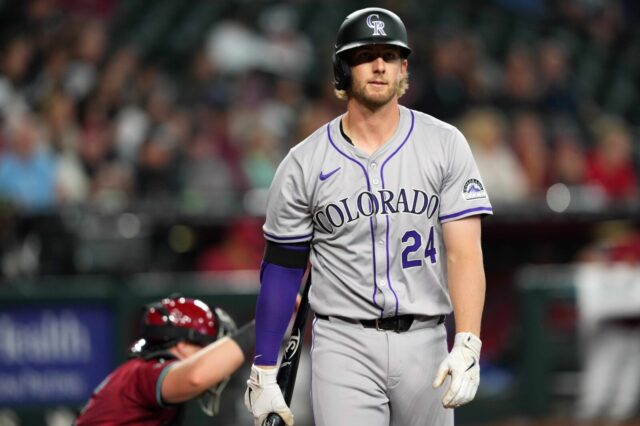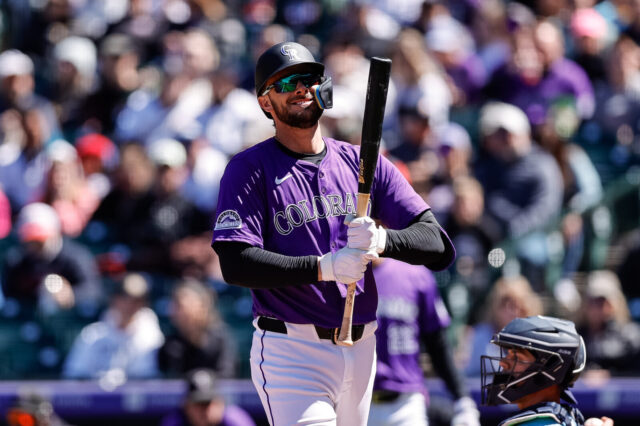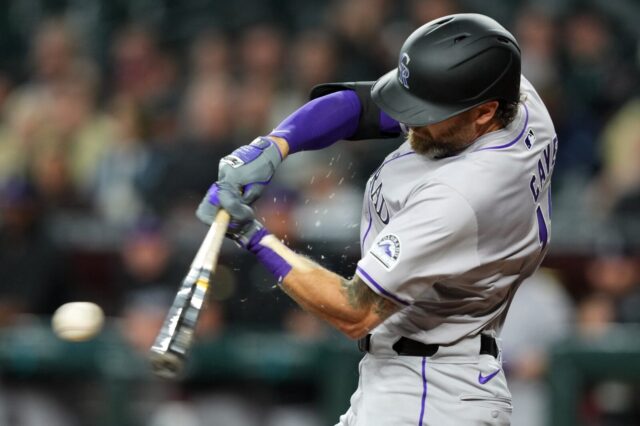In an e-mail sent to season-ticket holders on Monday, Rockies owner and CEO Richard Monfort explained that the team would be “instituting a modest price raise” for the 2018 season, while praising the team’s leap forward as a contender.
Monfort’s missive begins with a “THANK YOU TO OUR MOST LOYAL FANS!” — and continues with a fan-like exuberance of his own. “Even though we all would have preferred to play deeper into the postseason, 2017 was a tremendous step forward and a valuable learning experience for our young players. Playing down the stretch, there was not a game that I can remember that wasn’t an edge-of-your-seat battle, and our guys never quit!”
The Rockies, under GM Jeff Bridich, spent heavily in the offseason, handing out big-money contracts to free agents 1B/OF Ian Desmond (5 years/$70M), RP Mike Dunn (3 years/$19M), and closer Greg Holland (1 year/$7M). Then they added to it at the trade-deadline, acquiring RP Pat Neshek (1 year/$2.4M pro-rated) and C Jonathan Lucroy (1 year/$1.9M pro-rated).
As a result, the Rockies’ payroll soared to $146.7 million in 2017, up from $120.6M in 2016. With significant unrestricted free-agents like OF Carlos Gonzalez, Holland, Lucroy, Neshek and 1B Mark Reynolds — and arbitration-eligible ones like OF Charlie Blackmon and 2B D.J. LeMahieu — to take care of, the team’s payroll will have to make another leap if the Rockies are to build upon their success.
That’s what Monfort wants to do. “As with any team, there are player decisions to be made and areas to improve, so that is our charge this offseason: Keep getting better and win more games!”
And that means raising costs. The Rockies, who continue to make the Coors Field experience unique, are adding new features to the ballpark over the winter once more, but this time, the focus is squarely on the team itself.
“We understand that no one wants to pay more,” Monfort wrote. “Hopefully, this will allow us to sign and retain players that can help us get over the top.” The Rockies are saddled with one of the least-lucrative television deals in baseball; a $20 million per year contract that doesn’t expire until after the 2020 season. In contrast, the Dodgers’ television contract paid the team $204 million — in 2016 alone.
Monfort closed on a positive note. “I am always optimistic, but this group headed by Bud Black seems to have that secret sauce that great teams possess: a mix of youth and veterans, strong arms and athletic bodies, and most important, an incredible desire to deliver a championship to our fans.”
The business of baseball is an expensive one: the Rockies’ payroll has gone from $85.6 million to $146.7 in only five seasons; in that span, the Rockies’ payroll rank has still only gone up five spots, from No. 22 to No. 17.
Like death and taxes, price increases are inevitable — here’s guessing that Rockies’ fans can live with that, assuming that the 2017 season wasn’t an aberration, but the first step towards perennial playoff contention.



